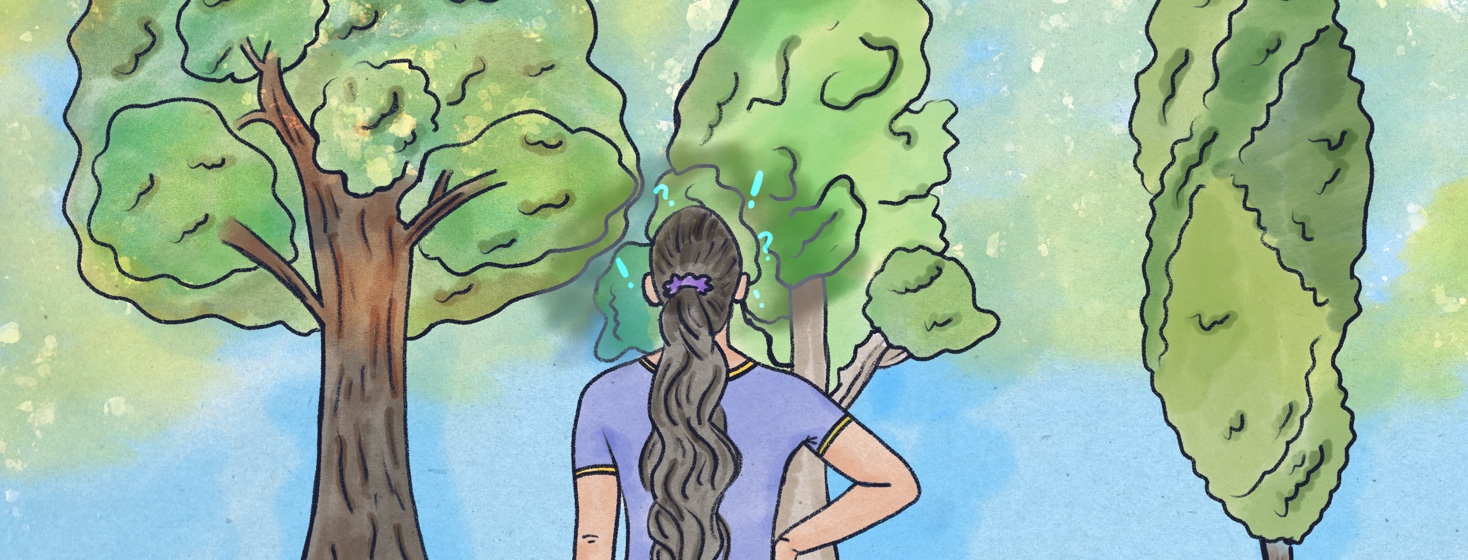Wait...Trees Have Pollen Too?
For all of you fellow allergy sufferers, I get it - I really do. I am sniffling and sneezing too. Ugh.
It's unseasonably warm where I live. Our record-breaking warm streak has led to a balmy 80 degrees Fahrenheit in March!
Normally, our beautiful mountains would be covered in snow, and tourists would flood our state, anxious to hit the slopes. Instead, it's warm and dry. And the lake was busy with boats and windsurfers. It's been so warm here that our local allergy clinic started tracking pollen in February. Yep, February. And guess what was already blooming? Tree pollen.
Do trees have pollen?
Yes! Most people are surprised to hear that trees have pollen! People don't tend to realize that trees bloom every spring, just like flowers. Usually, flowers are blamed for spring allergies, but tree pollen is another culprit.
I help families learn more about allergies, eczema, and asthma for my job. My allergies were flaring up one day, and I asked my client how their allergies were doing. My client said they were also struggling with sneezing, a runny nose, itchy eyes and throat, and swollen red eyes.
I was sympathetic and said, "Isn't tree pollen the worst!?" My client replied, "I'm not allergic to trees, just pollen." I told them that trees HAVE pollen! My client was not convinced. Their response was a dubious, "Hmmm..."
Tracking tree pollen counts
I loaded the pollen count website and showed them the pollen counts from our local allergy clinic. The results showed that Elm, Juniper, Poplar, Cottonwood, and Aspen trees were moderate for pollen counts. And my neighborhood is surrounded by all of those trees! It was a pollen allergy overload.
My client seemed very surprised! They had no idea that trees have pollen and also bloom each spring.
Struggling with spring allergies
Do you struggle with spring allergies? If so, you are in good company. 60 million Americans also suffer from allergies.1
Some people, like my family and me, have allergies year-round. Our allergies change depending on the season and what is blooming. We can always tell when something new is blooming when we start experiencing symptoms.
My adult children have all completed 5 years' worth of allergy shots, and they can all vividly remember what they are allergic to. I'm glad they can remember because I can't keep track of it. When trees pop up on the pollen count, they know they need to be careful and plan indoor activities instead of spending a day outside.
How can you figure out what you are allergic to?
There are a couple of options to find out what you are allergic to. You and your doctor can decide together which choice is right for you. There are many allergy tests available to determine your allergies.
Skin prick tests versus blood tests
It sounds scary, but it's not that bad. All three of my adult children had skin prick tests when they were little. They also had to repeat the skin prick test to adjust their allergy shots later. When my kids had the testing done, our Shot Nurse would gently scratch an area of their back with a plastic vial that contained a particular allergen (some clinics do the same test on the forearm).
After 20 minutes, Shot Nurse would measure each welt, and Allergy Doc would explain what each of my kids was allergic to. Then he would order serum mixed up just for them so they could be desensitized to the allergens.
Blood tests
Some patients prefer taking a blood test. Since you have to sit still for 20 minutes after the skin prick test, it can be challenging for people (especially children) to stay still when their forearm or back is itching. Also, a skin prick test requires that you stop taking allergy medicine 1 week before the test. And that can be pretty miserable during allergy season!
Talk to your doctor to see which test is best for you! And remember – don't blame allergies on flowers. You could be allergic to tree pollen!

Join the conversation